At Rose Hill Center, we believe lifelong well-being is achievable for everyone, regardless of mental health challenges, which is why we’ve centered our corporate brand around it. And after more than 30 years of supporting our residents as they work toward it, we’ve gathered practical, empowering strategies to help you cultivate lifelong well-being, one day, one habit and one connection at a time.
To see how you can cultivate lifelong well-being, or help a loved one embark on their journey, read our simple tips for success.
- Create a routine. Routines can help build a framework that every day will follow, which promotes mental clarity and emotional stability. A routine can also provide both stability and a sense of predictability, which can be comforting during challenging times. To help set yourself up for success, we recommend starting small and adapting as needed. Here are some ideas to consider:
- Morning rituals: Start your day with intention. Take five minutes to meditate, enjoy a cup of tea or jot down a goal for the day. A consistent start can set a positive tone.
- Productive blocks: Break your day into manageable sections. For example, mornings might include personal care and therapy, while afternoons focus on hobbies or physical activity.
- Evening wind-down: End your day with calming activities, like reading, gentle stretches or listening to music, to prepare your mind and body for rest.
- Focus on nutrition and hydration. Good nutrition is more than just fuel for the body — it’s essential for emotional and cognitive function. And while individuals can prioritize the practical steps, family members can also help by sharing meals or cooking together, both of which can be a bonding experience and an opportunity to promote healthy habits.
- Simple meal planning: Focus on balanced meals with lean proteins, whole grains and colorful vegetables. Bonus: Preparing meals in advance can reduce stress around food choices.
- Hydration habits: Keep a water bottle nearby and take regular sips throughout the day. If plain water feels boring, try adding fresh fruit for a splash of flavor.
- Snack wisely: Choose nutrient-rich snacks like nuts, yogurt or sliced veggies. These can stabilize blood sugar levels and prevent energy dips that impact mood.
- Stay physically active. Physical activity has well-documented benefits for both mental and physical health, but it doesn’t have to be overwhelming or strenuous. Here’s how to make movement part of your daily life:
- Outdoor activities: If you’re a resident, take a stroll on Rose Hill’s serene trails, breathe in the fresh air and enjoy the calming effects of nature.
- Gentle exercise options: Activities like yoga or tai chi improve flexibility, reduce stress and can be done alone or in groups.
- Set realistic goals: To start, aim for 10 to 15 minutes of movement each day. Build up gradually to avoid overexertion.
- Nurture social connections. Building and maintaining relationships can provide emotional support and reduce feelings of isolation. These connections can be cultivated in small, manageable ways:
- Group activities: Join art classes, fitness groups or other activities where you can meet people with shared interests.
- Meaningful conversations: Set aside time to call or meet with family or friends. Even a short chat can brighten your day.
- Expand your circle: Consider befriending peers in therapy or group sessions. Shared experiences can create deep, lasting bonds.
For family members, staying involved by visiting, writing letters or participating in family therapy can strengthen connections and provide reassurance to your loved one.
- Practice self-care and coping skills. Self-care isn’t just about pampering. It’s about maintaining your mental and emotional balance. Experiment with different approaches to see what works best:
- Mindfulness practices: Spend a few minutes focusing on your breath or observing your surroundings. (Don’t worry, if you’re not sure where to start, apps like Calm or Headspace can guide you.)
- Creative outlets: Channel emotions into creative pursuits, such as painting, knitting or writing. These activities can provide a sense of purpose and achievement.
- Stress management: Practice grounding techniques, like the 5-4-3-2-1 method, to refocus during moments of anxiety.
Families can also encourage self-care by creating a safe, supportive environment where loved ones feel comfortable prioritizing their needs.
- Collaborate with your support team. If you have a mental health team, remember that they’re here to guide you on your journey. Make the most of their expertise by engaging actively.
- Open communication: Share your thoughts, concerns and progress during therapy sessions. Honesty helps your team tailor their support to your needs.
- Learn about your condition: Understanding your diagnosis and treatment options can empower you to make informed decisions about your care.
- Build trust: Establishing a strong relationship with your support team ensures you’ll feel more comfortable seeking help when challenges arise.
Families can also play an integral role in this collaboration. Stay informed about your loved one’s care plan and maintain open lines of communication with their support team.
- Celebrate progress, big and small. Lifelong well-being is about progress, not perfection. Recognize and celebrate even the smallest steps forward.
- Track milestones: Keep a journal or calendar to note accomplishments, like attending therapy, completing a task or learning a new skill.
- Reward yourself: Treat yourself to something enjoyable, like a favorite snack or a relaxing bath, to mark achievements.
- Reflect on growth: Periodically look back at where you started and how far you’ve come. Growth is often more visible in hindsight.
Lifelong well-being starts here. If you or a loved one would like to learn more about Rose Hill’s programs and resources, we’re here to help. Start by filling out a short screening survey to see if we could be the right fit for you.










